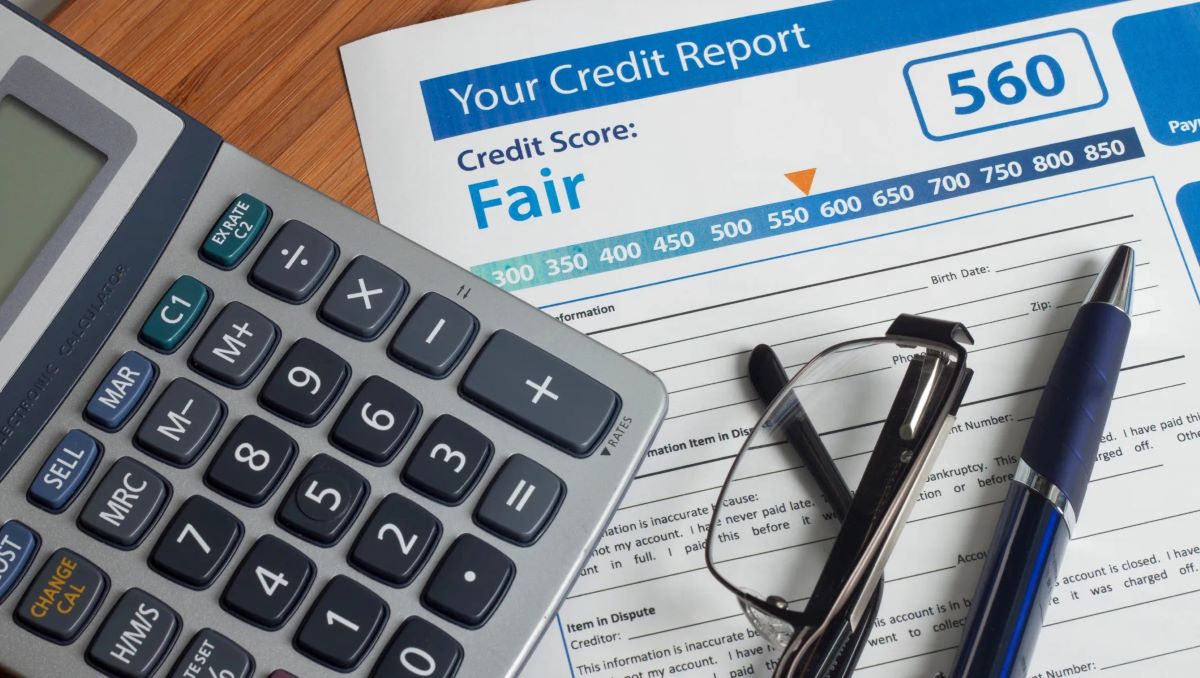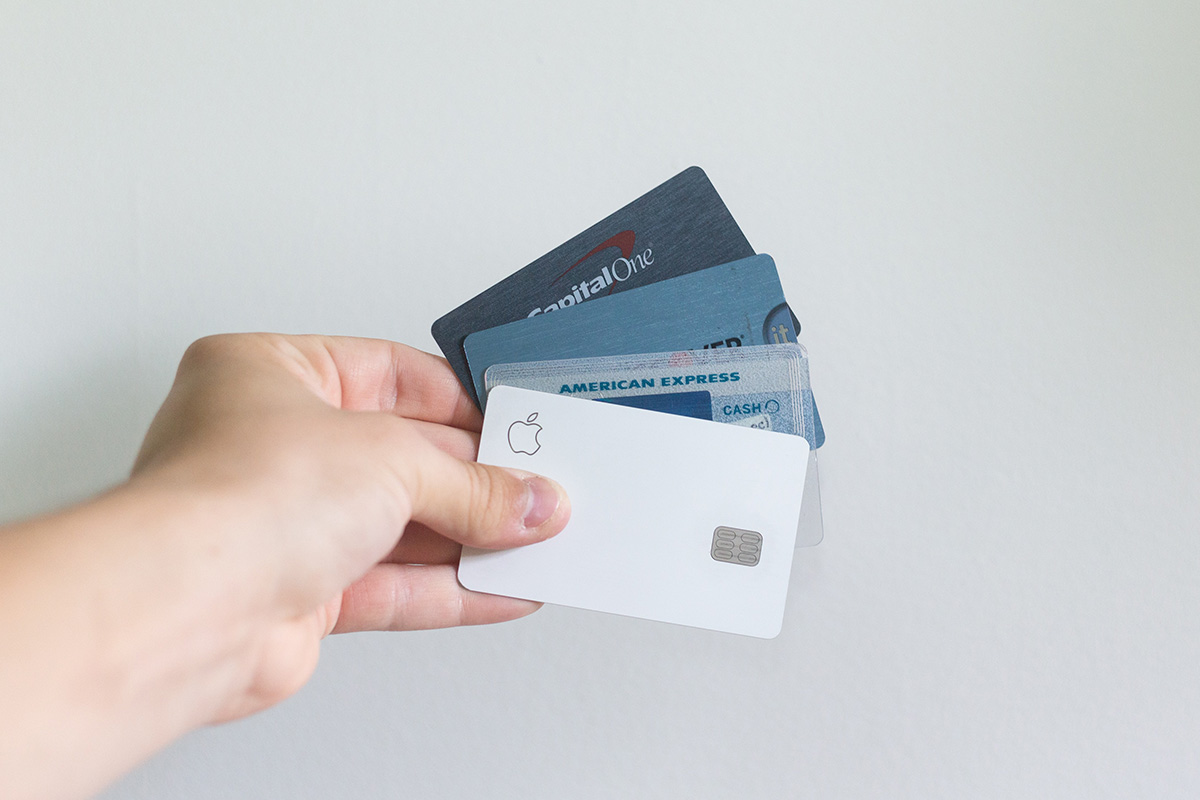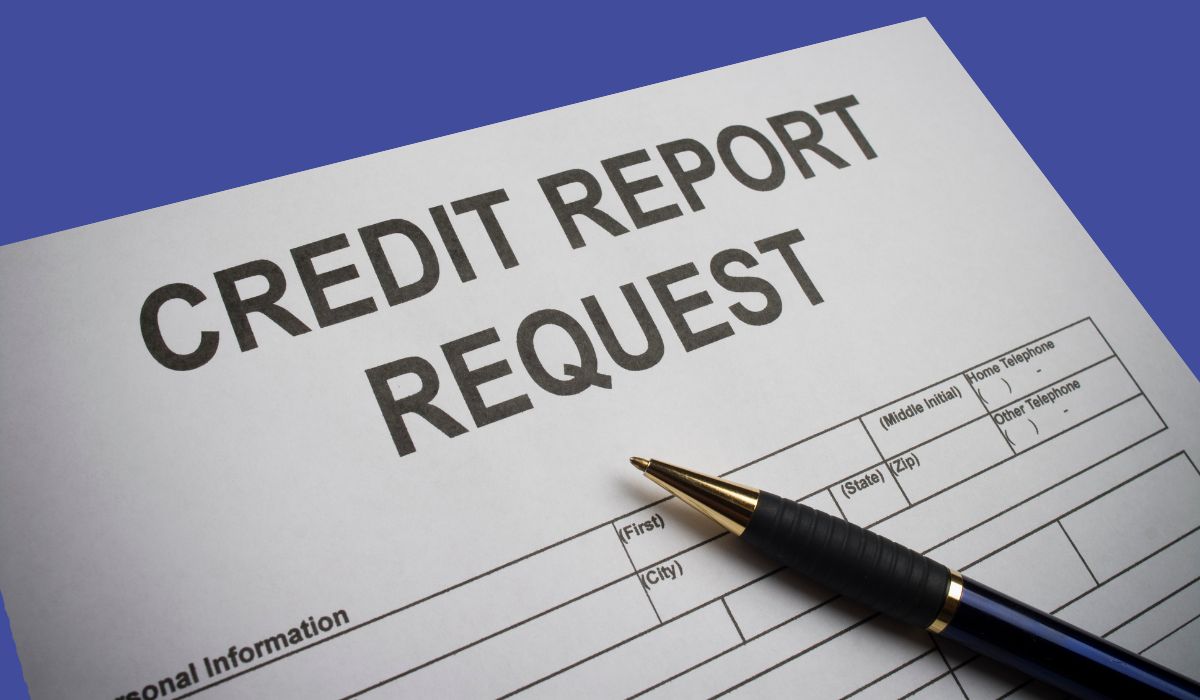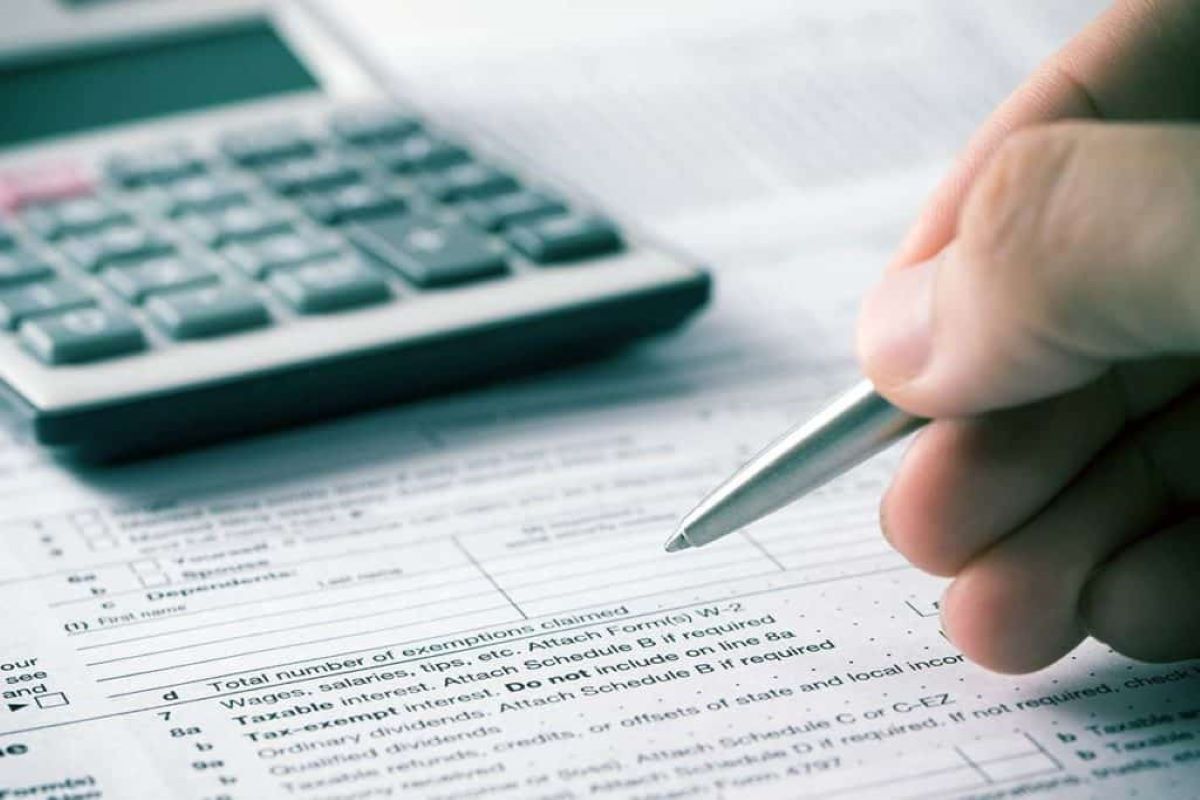

Finance
What Is Lexisnexis On My Credit Report?
Modified: March 1, 2024
Discover what LexisNexis on your credit report means and how it impacts your financial profile. Understand the role of LexisNexis in evaluating your creditworthiness and managing your finances.
(Many of the links in this article redirect to a specific reviewed product. Your purchase of these products through affiliate links helps to generate commission for LiveWell, at no extra cost. Learn more)
Table of Contents
- Introduction
- Understanding LexisNexis
- LexisNexis and Credit Reports
- Why LexisNexis Appears on Your Credit Report
- What Information Does LexisNexis Provide?
- How LexisNexis Can Affect Your Credit Score
- How to Dispute LexisNexis Information on Your Credit Report
- Tips for Dealing with LexisNexis on Your Credit Report
- Conclusion
Introduction
Welcome to the world of credit reports, where every financial decision you make can have a lasting impact on your financial well-being. If you’ve recently checked your credit report, you may have come across a mysterious entry called “LexisNexis.” So, what exactly is LexisNexis and why is it on your credit report?
LexisNexis is a leading provider of legal, regulatory, and business information and analytics. It is a trusted source used by financial institutions, insurance companies, government agencies, and more. While LexisNexis is primarily known for its role in the legal field, it also plays a significant role in the world of credit reporting.
Understanding the presence of LexisNexis on your credit report is important as it can have implications for your financial health and credit score. In this article, we will delve into what LexisNexis is, why it appears on your credit report, the information it provides, and how it can impact your credit score. We will also provide tips on how to dispute any inaccurate information and effectively deal with LexisNexis on your credit report.
So, let’s unravel the mystery of LexisNexis and gain a better understanding of its significance in the realm of credit reporting.
Understanding LexisNexis
To fully comprehend the role of LexisNexis in credit reporting, it’s essential to understand what it is and how it operates. LexisNexis is a powerful database and information provider that collects, organizes, and analyzes vast amounts of data from various sources.
Originally established in the 1970s as a legal research tool, LexisNexis has evolved into a comprehensive resource used by businesses, institutions, and government agencies. It aggregates data from public records, court documents, regulatory agencies, and other sources to provide a broad range of information.
Within the context of credit reporting, LexisNexis gathers data related to various aspects of an individual’s financial life, including bankruptcies, liens, court judgments, and criminal records. This information is collected from a multitude of sources, such as court records, public announcements, and government databases.
By consolidating this extensive collection of data, LexisNexis creates comprehensive profiles of individuals that are accessible to creditors, lenders, and other authorized entities. These profiles provide a detailed overview of an individual’s financial history and can have a significant impact on credit decisions.
It’s important to note that LexisNexis does not generate credit scores or make credit decisions on its own. Instead, it acts as a provider of information, helping financial institutions and other entities make informed decisions based on a borrower’s creditworthiness and risk.
Now that we have a basic understanding of LexisNexis and its role in credit reporting, let’s dive deeper into why it appears on your credit report and how it influences your financial life.
LexisNexis and Credit Reports
If you’ve ever obtained a copy of your credit report, you may have noticed a section dedicated to LexisNexis. This section, often labeled as “LexisNexis Risk Solutions” or “LexisNexis Public Records,” contains information gathered by LexisNexis that is relevant to your creditworthiness.
While traditional credit reporting agencies like Equifax, Experian, and TransUnion focus on your payment history, credit utilization, and other credit-related factors, LexisNexis provides a different perspective. It gathers data from public records, court documents, and other sources to provide additional insights into your financial background.
LexisNexis’ information is used by lenders, creditors, and employers to assess the risk associated with extending credit or offering employment opportunities. It helps them make informed decisions by providing a comprehensive view of your financial and legal history.
One crucial aspect of LexisNexis’ involvement in credit reporting is the presence of public records. Public records can include bankruptcies, liens, judgments, and other legal actions that may have an impact on your creditworthiness. These records are often considered negative factors in credit assessment, as they suggest financial instability or past financial struggles.
When creditors and lenders review your credit report, they not only look at your credit history but also consider the information provided by LexisNexis. This additional layer of information helps them evaluate your overall risk level and make informed decisions.
It’s important to note that not all credit reports include a LexisNexis section. The inclusion of LexisNexis on your credit report may vary depending on the reporting agency and the specific information available from LexisNexis for your profile.
Now that we understand the relationship between LexisNexis and credit reports, let’s explore why LexisNexis appears on your credit report and what information it provides.
Why LexisNexis Appears on Your Credit Report
LexisNexis appears on your credit report because it provides additional information that is relevant to assessing your creditworthiness. While traditional credit reporting agencies focus primarily on your credit history, payment patterns, and other credit-related factors, LexisNexis offers a broader perspective by including public records and other non-traditional data.
Public records, such as bankruptcies, liens, judgments, and other legal actions, can have a significant impact on your financial stability and creditworthiness. By including this information, LexisNexis provides a more comprehensive view of your financial background, allowing creditors and lenders to make more informed decisions.
When you apply for a loan, credit card, or any type of financing, the lender wants to assess your creditworthiness and determine the level of risk involved in extending credit to you. By reviewing the information provided by LexisNexis, lenders gain insights into any legal or financial issues you may have faced in the past.
For example, if you have a history of bankruptcies, it indicates that you have had difficulty managing your finances in the past. This can be a red flag for lenders who may perceive you as a higher-risk borrower. The presence of a lien or judgment may suggest that you have outstanding debts or legal obligations which could impact your ability to repay new credit.
By including LexisNexis information on your credit report, creditors and lenders can weigh these additional factors alongside your traditional credit history to make a more holistic assessment of your creditworthiness.
It’s important to note that while LexisNexis provides valuable information, its presence on your credit report does not directly impact your credit score. Credit scores are calculated based on the information provided by the traditional credit reporting agencies and their scoring models.
Now that we understand why LexisNexis appears on your credit report, let’s explore the type of information it provides.
What Information Does LexisNexis Provide?
LexisNexis collects a wide range of data from various sources to create comprehensive profiles of individuals. When it comes to credit reporting, LexisNexis provides information that goes beyond your traditional credit history. Here are some types of information that LexisNexis may include in your credit report:
- Public Records: LexisNexis gathers data from public records, including bankruptcies, tax liens, civil judgments, foreclosures, and other legal actions. These records provide insight into your financial and legal history and can be influential factors in assessing your creditworthiness.
- Criminal Records: LexisNexis may also include information about your criminal history. While not directly related to your creditworthiness, some lenders and employers may consider this information when making decisions about your credit or employment.
- Property Records: LexisNexis collects information about property ownership and property-related transactions. This information can provide insights into your assets and financial stability.
- Professional Licenses: If you hold professional licenses or certifications, LexisNexis may include this information on your credit report. This data can be relevant for certain industries or for employers seeking to verify your credentials.
- Business Information: If you are a business owner, LexisNexis may include information about your business, such as ownership details, business credit relationships, and legal actions involving your business.
It’s important to note that not all individuals will have the same information included in their LexisNexis profile. The content of your LexisNexis report will depend on various factors, such as the availability of public records and the specific data sources accessed by LexisNexis.
While LexisNexis provides valuable information to creditors and lenders, it’s crucial to ensure that the information in your LexisNexis report is accurate. Errors or outdated information can have a negative impact on your creditworthiness. If you find any inaccuracies, you have the right to dispute them and have them corrected, which we will discuss in more detail later.
Now that we know the type of information provided by LexisNexis, let’s explore how this information can affect your credit score.
How LexisNexis Can Affect Your Credit Score
While LexisNexis does not directly calculate your credit score, the information it provides can indirectly impact your creditworthiness and potentially influence your credit score. Here’s how LexisNexis can affect your credit score:
1. Negative Public Records: If LexisNexis includes negative public records on your credit report, such as bankruptcies, tax liens, or civil judgments, they can significantly impact your creditworthiness. These records suggest financial difficulties or legal actions, which can lower your credit score and make it harder for you to obtain credit in the future.
2. Risk Assessment: Creditors and lenders use the information from LexisNexis to assess your level of risk. If you have a history of financial and legal issues, it may indicate a higher risk of defaulting on credit obligations. As a result, lenders might offer you less favorable terms or deny credit altogether.
3. Employment Opportunities: Some employers may review credit reports that include LexisNexis data as part of their hiring process. While credit reports are primarily used to assess an individual’s financial responsibility, certain negative information from LexisNexis, such as criminal records or legal judgments, may influence an employer’s decision and potentially affect your chances of employment.
4. Manual Underwriting: In certain cases, when your credit history is limited or there are negative factors on your credit report, creditors may manually review your application. This is known as manual underwriting. During this process, the information provided by LexisNexis can play a crucial role in determining whether to approve your application and set the terms of your credit.
It’s important to note that while LexisNexis can impact your creditworthiness, it is just one piece of the puzzle. Lenders and creditors consider various other factors, such as your payment history, credit utilization, and overall financial stability when assessing your creditworthiness and determining your credit score.
Now that we understand how LexisNexis can affect your credit score, let’s explore what steps you can take if you need to dispute any information provided by LexisNexis on your credit report.
How to Dispute LexisNexis Information on Your Credit Report
If you believe that the information provided by LexisNexis on your credit report is inaccurate or outdated, it is important to take action and dispute these errors. Here are the steps you can take to dispute LexisNexis information on your credit report:
- Review Your Credit Report: Carefully review your credit report to identify the specific information provided by LexisNexis that you believe is inaccurate. Take note of any public records, criminal records, or other details that you want to dispute.
- Gather Documentation: Collect any supporting documentation that can help prove the inaccuracies or outdated nature of the information. This can include court documents, receipts, or any other relevant proof.
- Write a Dispute Letter: Prepare a formal dispute letter addressing the credit reporting agency that provided your credit report. In the letter, clearly explain the inaccuracies and provide any supporting evidence. Be specific and concise in your explanations.
- Send the Dispute Letter: Send the dispute letter to the credit reporting agency via certified mail with a return receipt requested. This will provide you with proof of delivery and ensure that your dispute is properly received.
- Investigation Process: Once the credit reporting agency receives your dispute letter, they are required to investigate the information you are disputing. They will reach out to LexisNexis to verify the accuracy of the information in question.
- Resolution and Notification: The credit reporting agency must inform you of the results of their investigation within 30 days of receiving your dispute. If they find that the information provided by LexisNexis is indeed inaccurate, they are required to remove it from your credit report.
- Follow Up: Monitor your credit report regularly to ensure that the inaccurate information has been removed. If the disputed information still appears on your credit report or if you are unsatisfied with the resolution, you may need to escalate your dispute further by contacting the Consumer Financial Protection Bureau (CFPB) or seeking legal advice.
It’s important to note that the process of disputing information on your credit report may require patience and persistence. Keep copies of all correspondence and documents related to your dispute for your records.
Now that we’ve discussed how to dispute LexisNexis information on your credit report, let’s explore some tips for effectively dealing with LexisNexis on your credit report.
Tips for Dealing with LexisNexis on Your Credit Report
Dealing with LexisNexis on your credit report can be overwhelming, but with the right approach, you can effectively manage this aspect of your credit profile. Here are some tips to help you navigate the process:
- Regularly Monitor Your Credit Report: Stay proactive by regularly monitoring your credit report from all three major credit reporting agencies. This allows you to stay informed about any changes or discrepancies and take immediate action if needed.
- Check for Accuracy: Review the information provided by LexisNexis on your credit report for accuracy. If you notice any errors or outdated information, follow the dispute process outlined earlier to have it corrected.
- Understand the Impact: Educate yourself on how LexisNexis information can impact your creditworthiness. Take steps to improve your credit score and financial stability, such as making timely payments, reducing debt, and maintaining a good credit utilization ratio.
- Maintain Good Financial Practices: Focus on building a positive financial track record by practicing responsible financial habits. Pay your bills on time, keep credit card balances low, and avoid taking on unnecessary debt.
- Use Credit Responsibly: Be cautious of the financial decisions you make and understand the potential consequences. Avoid excessive credit applications, as multiple inquiries can negatively impact your credit score.
- Stay Informed: Stay up to date with changes in credit reporting laws and regulations. Familiarize yourself with your rights as a consumer and understand the steps you can take to protect your creditworthiness.
- Seek Professional Help if Needed: If you encounter complex credit issues or find it challenging to navigate the credit reporting process on your own, consider seeking assistance from a reputable credit counseling agency or a consumer law attorney.
Remember, dealing with LexisNexis on your credit report requires vigilance and careful attention. By being proactive and taking the necessary steps to address any inaccuracies, you can ensure that your credit report accurately reflects your financial profile.
Now, let’s wrap up this journey by summarizing what we’ve discussed so far.
Conclusion
In conclusion, understanding the presence of LexisNexis on your credit report is essential for maintaining a healthy financial profile. While LexisNexis is primarily known for its role in the legal field, it also plays a significant role in credit reporting by providing additional information beyond traditional credit history.
LexisNexis collects data from various sources, including public records, court documents, and other non-traditional sources, to provide a comprehensive view of your financial and legal background. This information is used by lenders, creditors, and employers to assess your creditworthiness and make informed decisions.
While LexisNexis does not directly calculate your credit score, the information it provides can indirectly impact your creditworthiness. Negative public records and other factors from LexisNexis can lower your credit score and affect your ability to obtain credit or employment.
If you believe that the information provided by LexisNexis on your credit report is inaccurate, it’s important to dispute these errors. Follow the proper steps to initiate a dispute and provide supporting documentation to have the inaccuracies corrected.
Additionally, maintaining good financial habits, regularly monitoring your credit report, and staying informed about credit reporting laws and regulations are key to effectively dealing with LexisNexis on your credit report. By taking these measures, you can ensure that your credit report accurately reflects your financial standing.
Remember, your credit report is a crucial tool for financial health. Stay proactive, address any inaccuracies promptly, and strive to improve your creditworthiness. By doing so, you can build a solid foundation for your financial future and secure better opportunities for credit and employment.
Stay empowered and take control of your credit report by understanding the role of LexisNexis and effectively managing the information it provides. Your financial well-being is in your hands.














